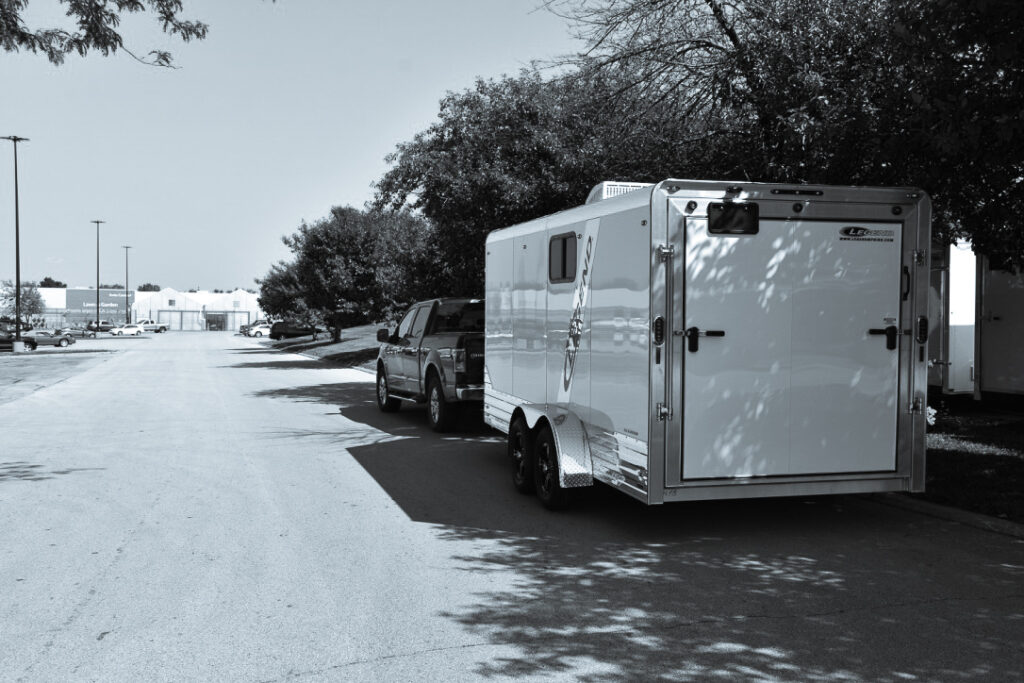This guide answers the popular question: What are the tips for driving on icy roads?
Winter in the Midwest can be brutal and getting stuck out in a bad storm can be scary if you meet icy roadways. Ice on roadways is unexpected and black ice is impossible to spot before you’re fishtailing into the ditch. The best way to tackle driving on icy roads is to be prepared with these 4 driving tips:
Snow Tires
Ice can significantly impact your vehicle’s ability to grip the road and maintain traction. Since traction is an important part of winter towing, outfitting your trailer with winter tires will go a long way. Winter tires, also known as snow tires, are tires designed for driving on snow and ice. Snow tires have a tread design with larger gaps than those on conventional tires, increasing traction on snow and ice to help you accelerate, stop, and turn when towing a heavy load.
Trailer Brakes
One of the best ways to maintain steady control over your load when winter towing conditions get treacherous is to install a set of trailer brakes. By distributing the braking force between the tow vehicle and the trailer, you’re more likely to maintain control of your vehicle on icy roads and avoid sliding or fishtailing.
If you are interested in adding brakes to your trailer, contact BlueSwift Axles today and we would be happy to discuss which trailer brake option is right for you.
Momentum
While brakes can help you slow down on icy roads, momentum is often your friend if you encounter icy or snow-covered roadways. To avoid getting stuck on ice or in deeper snow, it pays to maintain your truck’s momentum, especially on hills. If you attempt to stop on an uphill incline, the chances of sliding backward are very likely.
Eyes on the icy roads
Towing in the winter challenges requires you to be alert at all times. Changing roadway conditions can happen suddenly and you may only have a few seconds to decide how to respond. Be extra cautious on overpasses and bridges, as these surfaces are often the first to freeze. If you’re driving long distances, across states that are prone to winter storms, be prepared and know what’s ahead. Checking the forecast and the radar of your path ahead is key.
Know when to call it quits
Even if your trailer is equipped with trailer brakes, snow tires, expert driving experience, and preparedness, sometimes the roads are just too dangerous for hauling. Know when to pull over and call it quits. Being overconfident and driving when conditions are unsafe may result in you sliding off the road and into the ditch. When the Department of Transportation issues a travel advisory, pay attention and go home or find a safe location to park your vehicle until the roads are cleared and the travel advisory is lifted.
